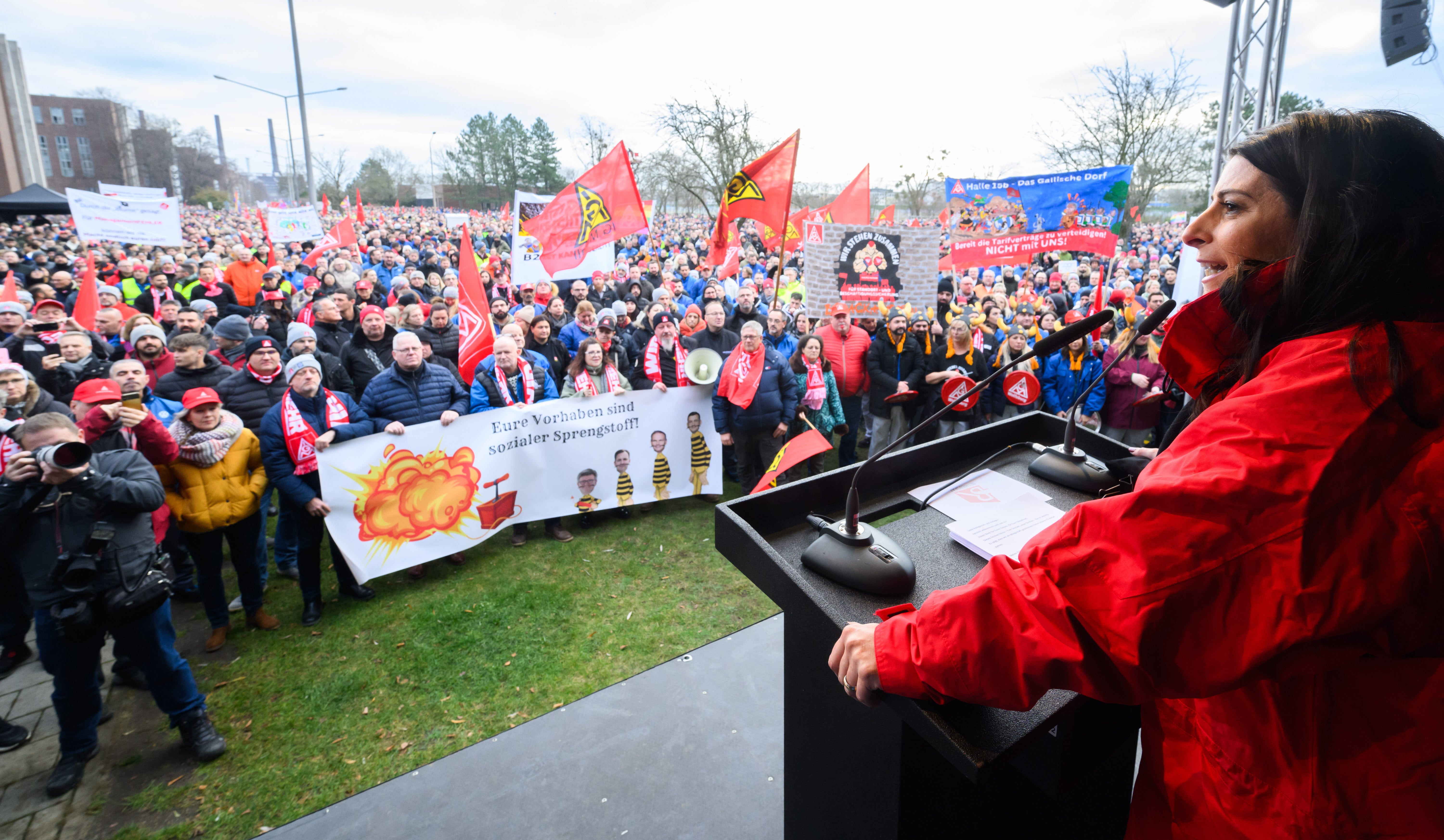
Volkswagen workers have begun mass strikes across Germany as the company threatens to cut pay and close factories to combat a slack European car market.
The strikes come amid a spate of warnings from European carmakers that a lack of demand for electric cars, as well as competition from China, has left the industry in crisis.
Volkswagen workers have launched rolling two-hour strikes at nine factories across Germany to underline their resistance to the cuts.
It is the first time in its 87-year history that Volkswagen is considering factory closures in Germany, as European manufacturers struggle against foreign competition, high production costs, and slow adoption of electric vehicles.
Among the affected sites is the Wolfsburg plant, where employees are preparing to rally against the carmaker’s cost-cutting measures.
These warning strikes, a standard strategy in German wage negotiations, coincide with discussions for a new labour agreement following the expiration of a mandatory peace period that had prohibited strikes since Sunday.
IG Metall, the industrial union, stated that any further job actions beyond Monday would be announced in due course.
Recently, Stellantis, which owns Vauxhall, revealed plans to shut its Luton van factory, jeopardising 1,100 jobs. This was followed by the sudden resignation of CEO Carlos Tavares, after the company’s value plummeted by approximately 40 per cent this year.
Sources disclosed to the Financial Times that Tavares clashed with the board over his push for a stringent electric vehicle strategy to comply with EU emissions regulations, whereas the board favoured a more adaptable approach to maintain plant operations and profit margins.
The head of Ford’s UK division also warned last month that the British car industry faces a crisis due to the severe lack of demand for electric vehicles.
To address the issue, Volkswagen has proposed a 10 per cent pay cut for its 120,000 German employees and suggested closing three of its German plants. Workers’ representatives have voiced strong opposition to these measures.

Thorsten Groger, the regional head of IG Metall in Lower Saxony, where Volkswagen’s headquarters are located, asserted that the company would not be able to ignore the walkouts.
"If necessary, this will be one of the toughest conflicts Volkswagen has ever seen," he said.
Volkswagen has not publicly outlined its plans, but it is contending with reduced demand in Europe, rising costs, and heightened competition from Chinese automakers.
The company initially built factories to serve a European market anticipating 16 million annual vehicle sales, but current demand has fallen to around 14 million. This shortfall translates to a loss of 500,000 cars per year for Volkswagen, which holds a quarter of the market, according to Thomas Schaefer, head of the Volkswagen brand, as reported by German newspaper Welt am Sonntag.
Previously, robust profits from China helped offset higher costs, but the shifting landscape now necessitates urgent action, Mr Schaefer added.
Volkswagen insists it must reduce costs in Germany to match those of its competitors and its own plants in Eastern Europe and South America.
Daniela Cavallo, the chief employee representative, argued that workers should not bear the brunt of management’s failure to produce appealing products and develop an affordable entry-level electric vehicle.
“We demand that everyone contributes - management and shareholders included,” Ms Cavallo said at the Wolfsburg rally, amid a backdrop of drumming, whistling, and applause from employees.
Ms Cavallo indicated that the upcoming round of talks, scheduled for next week, will be decisive. "It’s likely to set the course - rapprochement or escalation. We are ready for both," she asserted.
The strikes, which began in Zwickau, eastern Germany, are expected to continue at factories in Braunschweig, Chemnitz, Dresden, Emden, Hanover, Kassel, and Salzgitter.
The next negotiations are set for 9 December.







